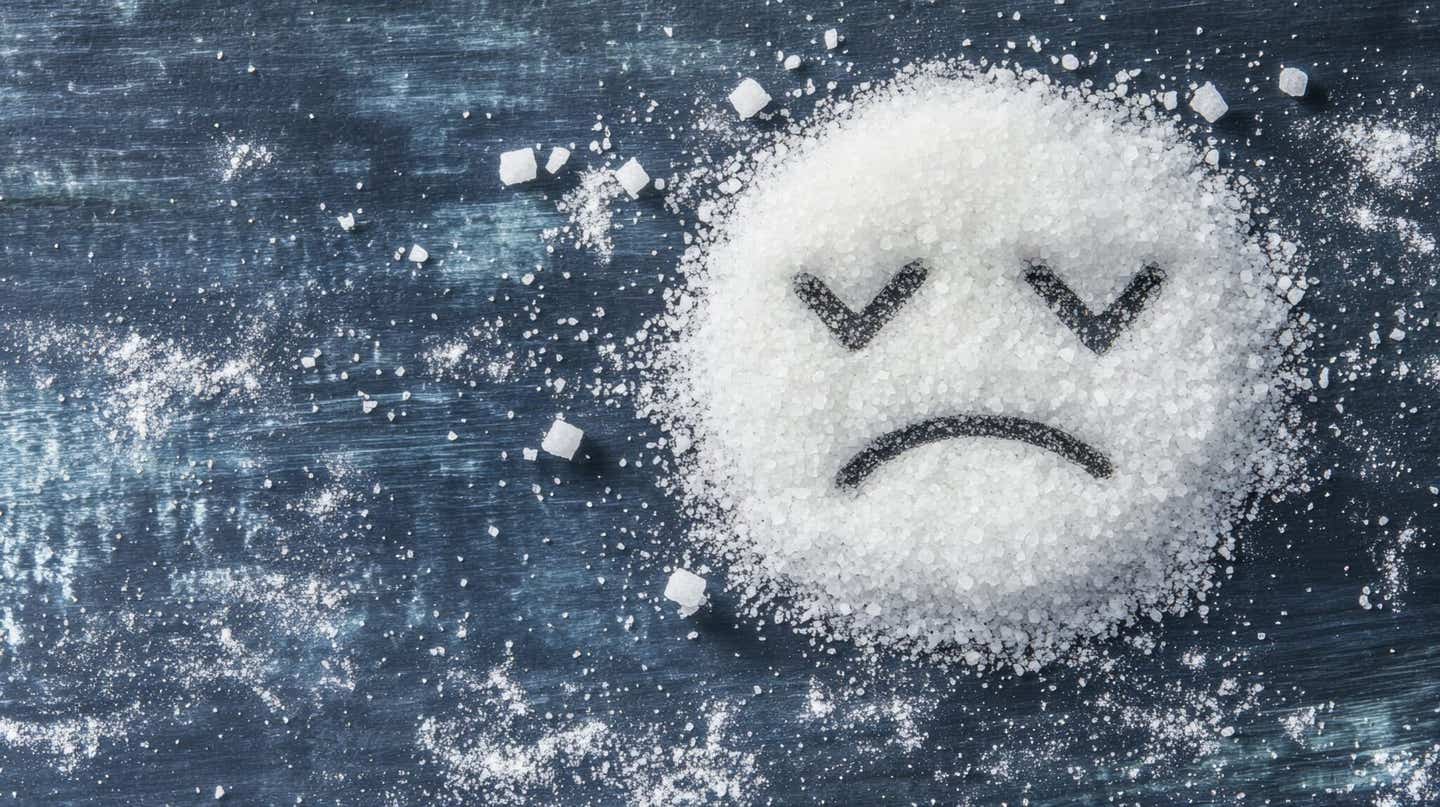Too much salt can harm your mind, not just your heart
New research shows a high-salt diet triggers depression-like symptoms in mice by activating immune cells that produce IL-17A.

Too much salt may harm your brain and mood. New research finds high-salt diets trigger depression through immune changes. (CREDIT: Adobe Stock)
A salty snack may seem harmless, but scientists are learning it can do more than raise your blood pressure. It might also affect your mental health. A new study has found that too much salt in the diet can trigger depression-like behavior—and it all starts in your immune system.
A Deeper Link Between Salt and Mood
Major depressive disorder ranks among the leading causes of disability and death. Around 15 to 18 percent of people experience it at some point in life. It limits how people function socially, worsens other health problems, and lowers quality of life. For years, doctors have suspected that diet plays a role in mental health, especially diets high in salt. But exactly how salt might lead to depression has remained a mystery—until now.
A team of scientists recently studied this question by feeding mice a high-salt diet (HSD) for five weeks. This length of time is often used in research to model how long-term salt intake affects health. The mice on the HSD showed clear changes. They became less active, avoided exploring, and showed signs similar to depression in humans. In contrast, mice on a regular diet did not show these behaviors.
But behavior alone didn’t explain why salt caused such changes. So the researchers dug deeper—into the brain and the immune system.
The Role of IL-17A: A Chemical Messenger
The scientists focused on a molecule called IL-17A. This small protein helps the immune system fight infections, but in some cases, it can cause problems. Earlier studies in humans had already found a link between IL-17A and depression. In this study, IL-17A levels rose sharply in the mice fed with high salt. The protein showed up in large amounts in their spleens, blood, and even in their brains.
Mice that couldn’t produce IL-17A didn’t show depression-like behavior—even when they ate the same salty diet. That’s when the researchers made a key connection: IL-17A may be the main driver behind depression-like changes brought on by salt.
Related Stories
"This work supports dietary interventions, such as salt reduction, as a preventive measure for mental illness. It also paves the way for novel therapeutic strategies targeting IL-17A to treat depression," explained Dr. Xiaojun Chen, lead author of the study from Nanjing Medical University.
A Hidden Trigger in the Immune System
Where does IL-17A come from in the first place? To answer that, the team looked at special immune cells known as gamma-delta T cells (γδT cells). These cells play a role in defending the body, but in the HSD-fed mice, they seemed to turn against their host.
The study found that these γδT cells produced almost 40% of the IL-17A in the salty-diet mice. That’s a large amount from a single cell type. To test how important this was, the scientists used an antibody to remove the γδT cells from the mice. The results were striking: the depression-like symptoms almost disappeared.
Removing a specific protein or cell type and seeing behavior improve is strong proof. It shows that salt isn’t just causing stress—it’s triggering a direct biological pathway. And that pathway leads from salt, through IL-17A and γδT cells, to depression-like states.
Real-World Implications: A Salty Diet and Public Health
In today’s world, salt is hard to avoid. Fast food and processed meals often contain more salt than a person needs in an entire day. Some foods have over 100 times more salt than similar dishes made at home. This makes high salt intake a major health issue in many countries.
Most people already know that too much salt can lead to heart disease or high blood pressure. But this study adds another layer: salt may also hurt your brain and mood. Depression already ranks among the top 10 causes of death in the U.S. Now, we know that diet—and especially salt—may make it worse.
These findings also support earlier research that linked high salt with poor mental health. Studies in humans have shown that people who eat less sodium tend to report better moods. This new study in mice gives clear evidence of why that may happen, by showing a chain reaction that starts in the diet and ends in the brain.
Dr. Chen said, “We hope these findings encourage discussions on salt consumption guidelines.” The team believes their work supports both cutting back on salt and developing new treatments that block IL-17A or remove γδT cells.
Next Steps in the Research
This study adds important pieces to the puzzle, but it isn’t the final answer. The team now plans to test their findings in people. They also want to understand exactly how salt activates γδT cells in the brain. Their goal is to map every step from the food we eat to the way we feel.
New treatments for depression could come from this line of research. Rather than relying only on drugs that affect brain chemicals like serotonin, doctors could one day target parts of the immune system to treat or prevent depression. IL-17A blockers already exist for some autoimmune conditions, so adapting them for depression might happen faster than expected.
Until then, the findings offer one simple piece of advice: eat less salt. It may not only help your heart—it could also help your mind.
Research findings are available online in the Journal of Immunology.
Note: The article above provided above by The Brighter Side of News.
Like these kind of feel good stories? Get The Brighter Side of News' newsletter.



